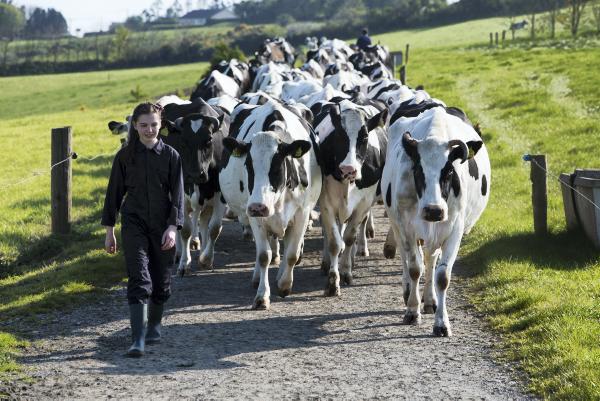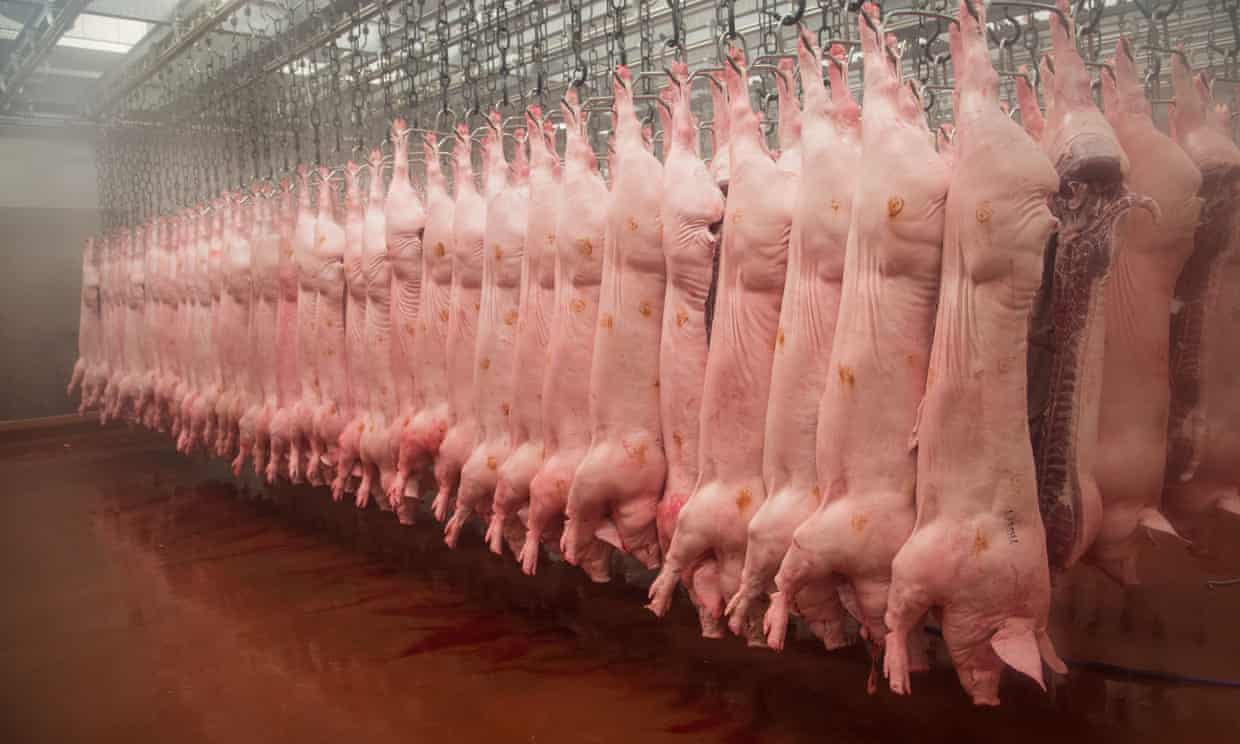- Joined
- Jan 8, 2007
- Messages
- 50,523
- Reaction score
- 840
So anybody here having steak tonight?
This is why i support local butchers and farm raised local food.
Sure it costs more money but it is a worth it in the end.
So anybody here having steak tonight?
Who should?
There simply wouldn't enough meat.
How about just make a new rule, no meat for people in large cities, done.
Unfortunately, factory farming is a necessary evil in the modern world where less than 20℅ live in rural areas.
This is why i support local butchers and farm raised local food.
Sure it costs more money but it is a worth it in the end.
If your in the KC area The Local Pig is my favorite.
Might be a dumb question, but I thought that the electric shock and/or gassing puts the pigs out cold so they can't feel the pain when they are killed.
Is that not true?
So anybody here having steak tonight?

Yeah isn't it like forbidden for the British to eat pork?Contaminated pig. Divine intervention.

The UK could lower its food standard regulations to allow meat trade deals with America. This should be of concern to everyone who lives in the UK. This report should also be of interest to Americans who aren't fully aware of whart happens in the meat industry in regards to food hygiene and safety regulations.
______________________________________________________________________________________
'Dirty meat': Shocking hygiene failings discovered in US pig and chicken plants
Previously unseen government records detail ‘deeply worrying’ incidents in pork and poultry plants, raising fears of ‘dirty meat’ entering the UK under a post-Brexit trade deal

Shocking hygiene failings have been discovered in some of the US’s biggest meat plants, as a new analysis reveals that as many as 15% (one in seven) of the US population suffers from foodborne illnesses annually.
A joint investigation by the Bureau of Investigative Journalism (TBIJ) and the Guardian found that hygiene incidents are at numbers that experts described as “deeply worrying”.
US campaigners are calling once again for the closure of a legal loophole that allows meat with salmonella to be sold in the human supply chain, and also warn about the industry’s push to speed up production in the country’s meat plants. And UK campaigners warn that the UK could be flooded with “dirty meat” if a US trade deal is signed post-Brexit.
The unpublished US- government records highlight numerous specific incidents including:
- Diseased poultry meat that had been condemned found in containers used to hold edible food products;
- Pig carcasses piling up on the factory floor after an equipment breakdown, leading to contamination with grease, blood and other filth;
- Meat destined for the human food chain found riddled with faecal matter and abscesses filled with pus;
- High-power hoses being used to clean dirty floors next to working production lines containing food products;
- Factory floors flooded with dirty water after drains became blocked by meat parts and other debris;
- Dirty chicken, soiled with faeces or having been dropped on the floor, being put back on to the production line after being rinsed with dilute chlorine.
All of the reported breaches resulted in immediate remedial action with no risk posed to consumers, according to the companies involved.
But campaigners warned that other violations may go undetected. Tony Corbo, senior lobbyist with Food and Water Watch, said: “While the inspectors are able to cite the plants for hundreds of violations per week, I am confident that they are not catching every instance of unsafe practices being committed in these plants.”
Meat hygiene inspectors interviewed by the Guardian agreed, saying fast line speeds and other pressures in some plants meant it was “inevitable” that some breaches slipped through the net.
The findings are worrying, according to Prof Erik Millstone, a food safety expert at Sussex University, “because of the risks of spreading infectious pathogens from carcass to carcass, and between portions of meat. The rates at which outbreaks of infectious food poisoning occur in the US are significantly higher than in the UK, or the EU, and poor hygiene in the meat supply chain is [a] leading cause of food poisoning in the US.”
The Bureau and the Guardian obtained previously unpublished documents relating to 47 meat plants across the US. Some of the documents relate to certain companies, including Pilgrim’s Pride, one of the US’s biggest poultry producers, and Swift Pork. Although not a comprehensive portrait of the sector - there are around 6,000 US plants regularly inspected by Food Safety and Inspection Service (FSIS) - the documents provide a snapshot of issues rarely detailed in public which has rung alarm bells with campaigners in both the US and UK.
“The US meat industry has a responsibility to clean up its act,” said David Wallinga, senior health officer at the Natural Resources Defence Council, which obtained some of the documents. He said the Pilgrim’s Pride records detailed “numerous food safety violations.”
Kerry McCarthy, former UK shadow environment minister and Labour MP, called for urgent reassurances from both the UK Food Standards Agency (FSA) and “the top of government” that standards would not be allowed to slip as trade negotiations with the US get underway.
“We cannot allow this to be a race to the bottom. We should insist the US raises its standards, and guarantees food safety, before we are prepared to allow in US meat imports,” she said. McCarthy has written to the environment secretary, Michael Gove, and Liam Fox, the trade secretary, to raise the matter.
The documents seen by the Bureau and Guardian do not reveal the full numbers of non-compliance reports across the whole sector. However, one dataset covering 13 large red meat and poultry plants over two years (2015-17) shows an average of more than 150 violations a week, and 15,000 violations over the entire period. Thousands of similar violations were recorded at 10 pork-producing plants over a five-year period up until 2016, further documents show.
Another batch of previously unpublished documents shows frequent failings at 24 plants operated by Pilgrim’s Pride who recently bought the British chicken giant Moy Park. The company slaughters 34 million birds each week and produces one in five of the chickens in the country.
More than 16,000 non-compliance reports on Pilgrim’s Pride operations detail 36,612 individual regulatory violations - an average of 1,464 a month - at the 24 plants during a 25-month period between 2014 and 2016.
In one incident, diseased meat – condemned from entering the human food chain – was placed in a container meant for edible product. An inspector discovered “carcasses of poultry showing evidence of septicemic disease ... carcasses showing evidence of having died from other causes than slaughter ... guts of carcasses, [and] poultry carcasses with heads attached.” He requested that the condemned items be removed. A similar incident was recorded some days later.
One inspector saw chicken drumsticks piling up on the floor, and instructed workers to pick them up “to be reconditioned with chlorinated water.” Again, a similar incident had occurred previously. In another incident in a bagging department, 36 shrink-wrapped whole birds were found scattered on the floor. An inspector noted: “in my presence the establishments began initiating their corrective action by picking up all affected product off the floor ... to be carried to the establishment’s designated wash station to be thoroughly rinsed off.”
Red tape in the meat industry? It's the difference between life and death
Kath Dalmeny
Read more
Meat soiled with faecal matter was also recorded, with an inspector noting “... I observed a poultry intestine in the liver bin. The intestine was approximately 6.5 inches long and had visible faeces oozing out both ends.” The incident resulted in the livers being condemned from the human food chain.
At another Pilgrim’s Pride plant, the records reveal how deficient equipment led to a carcass becoming contaminated with faeces. “I observed one of my 10 test birds with a spot of faecal matter on the exterior of the right thigh. The spot of faecal [sic] was … brownish green in colour and had a pasty consistency,” an inspector notes. The affected bird was “retained by management for review then sent to reprocessing for reconditioning with chlorinated water.” Similar carcass contamination had been recorded before.
Internal FSIS records also highlight numerous violations at meat plants producing pork. In an incident recorded at a plant run by Swift Pork, owned by meat giant JBS, 48 pig carcasses were found to have fallen on the floor because of defective equipment, leading to contamination with “black trolley grease, floor grime and bloody smears”. The records noted: “The line was stopped for about 15 minutes. The carcasses were sent to be trimmed first then steam vacuumed with 180F water.”
On another occasion, an employee cleaned the factory floor with meat products on an adjacent conveyor belt, creating a mist that could contaminate the meat. “This mist is contaminated by the inedible debris and ... comes into contact with edible product,” an inspector observed.
Read More: https://www.theguardian.com/animals...lings-discovered-in-us-pig-and-chicken-plants
I dunno if Europe is any better, this is how pigs are slowly tortured, gassed and handled in France:
horrific shit.
I dunno if Europe is any better, this is how pigs are slowly tortured, gassed and handled in France:
horrific shit.
CO2 is probably the best way to do it, people die from CO2 inhalation peacefully and quietly, it doesnt burn their lungs.
Animal butchering is a brutal business, nobody WANTS the animals to die a painful death. You can have PETA build the plants, it would still be brutal.
The last time someone started a thread like this it was full of idiots defending good old Murican farming practises and reminiscing about now-deceased farm CEOs who were wonderful people despite being investigated dozens of times for terrible violations of food safety and animal welfare laws.
Expect idiots shilling, is what I'm saying.
That's a lot to read. Cliffs?
This is why i support local butchers and farm raised local food.
Sure it costs more money but it is a worth it in the end.
Go vegetarian or vegan.
This is why i support local butchers and farm raised local food.
Sure it costs more money but it is a worth it in the end.
